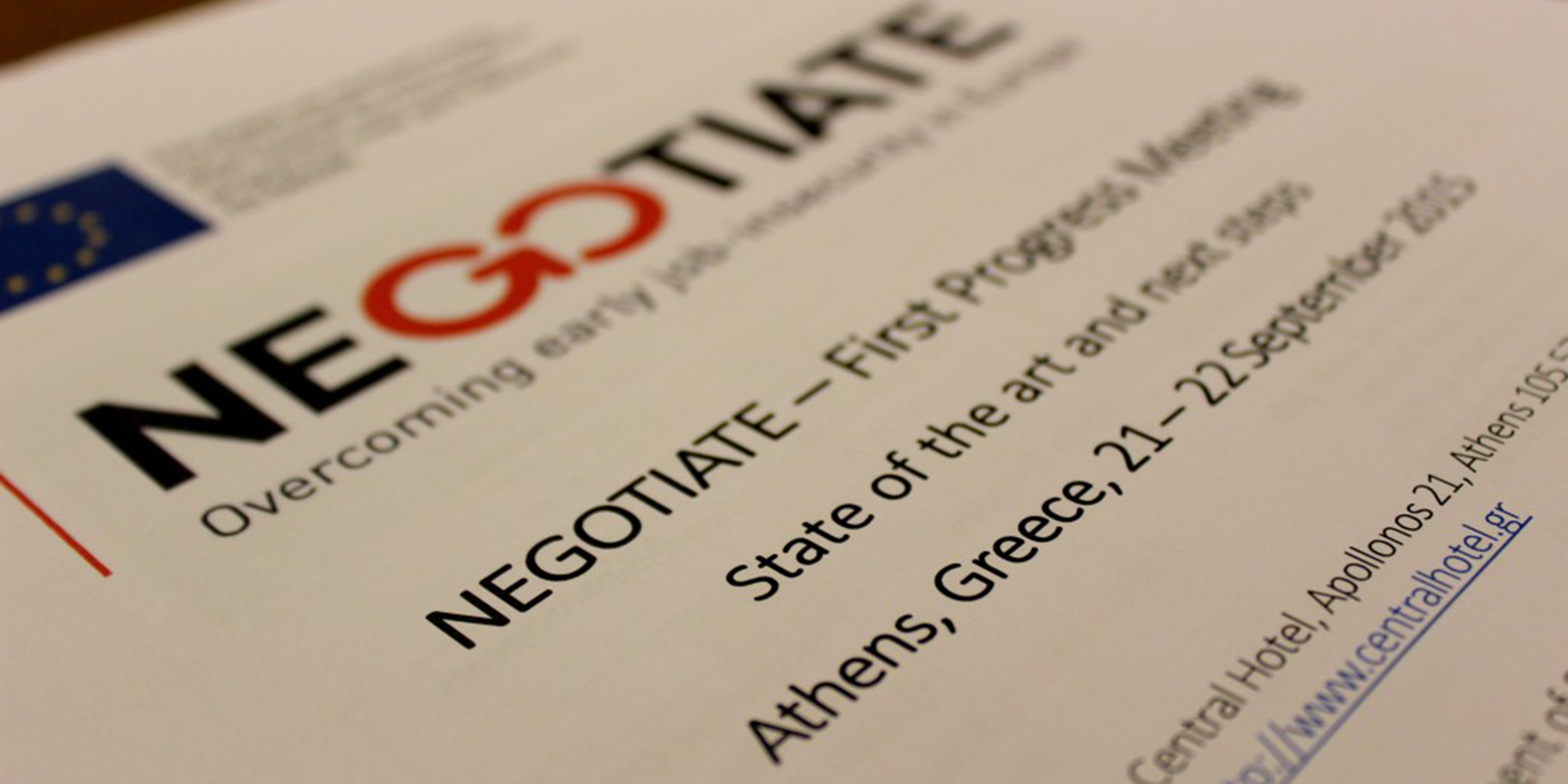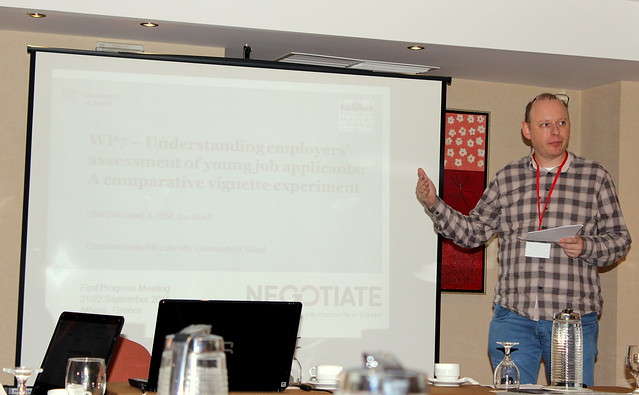On 21-22 September project partners met in Athens for the first progress meeting of the Negotiate project. The meeting organised by Panteion University of Social and Political Sciences was an opportunity to look at the current state of art and plan the next research steps to be taken. In the course of the next three years the researchers will work to provide new, gender-sensitive, comparative knowledge about the short- and long-term consequences of early job insecurity, taking into account how the active agency of young people mediates such consequences. The main objective is to use the results to enable policy makers at national and European level to design policy responses to the adverse effects of early job insecurities and youth unemployment.
At national level – in Bulgaria, the Czech Republic, Germany, Greece, Norway, Poland, Spain, Switzerland, and the United Kingdom – the national stakeholders fora and youth panels are being established with the purpose of gaining an insight from the practitioners on the challenges, gathering evidence, and discussing the policy recommendations. Moreover to enable debates, a series of public events will be organised to exchange with civil society organisations and general public on the early-job insecurities in Europe.
The first public event titled “Overcoming early-job insecurity in Europe” was organised on 22 September in Athens in collaboration with the Department of Social Policy at Panteion University of Social and Political Sciences (UPSPS). Prof. Jacqueline O’Reilly of University of Brighton and Prof. Bjørn Hvinden of HiOA-NOVA and Negotiate project leader gave a key-note lecture on the topic of early job-insecurity in Europe.
Prof O’Reilly in her presentation has focused on five characteristics of youth unemployment: flexible labour markets, structure of skills & education, patterns of migration, family legacies from previous recession and increased role for EU policies. The research shows that changing the employers’ expectations that young people should be “job-ready” emphasised the need for education systems to teach “employability” skills, and over education is more common in graduates from poorer backgrounds because they experience more difficult trajectory into employment as those coming from wealthier families or who can afford taking up unpaid internships. Another observation is that unemployed youth individuals seldom use the start-up subsidy, while in Germany the migrants have a higher rate of self-employment than non-migrants, and young people from work-poor households have higher probability of being unemployed and the similar trend is observed amongst households with non-working mothers.
Prof. Hvinden’s presentation focused on three policy concepts; activation, active inclusion and social investment. Countries that already have a tradition of investing in active measures, are the ones who, regardless of the crisis, are the ones who continue doing so. Following the social investment principles, welfare should not be spent on consumption rather invested in the cognitive development, education and lifelong learning. Participation in education and training increases changes to re-/enter the labour market.
In their research, the academics will look at the concepts of capability and resilience of young people facing job insecurity or unemployment, and consider the role of education, employability and negotiation position that are affecting the young person’s active agency. On this basis the project will identify the lessons for development of policy recommendations that will be further communicated to diverse groups of stakeholders, academia and the general public.

